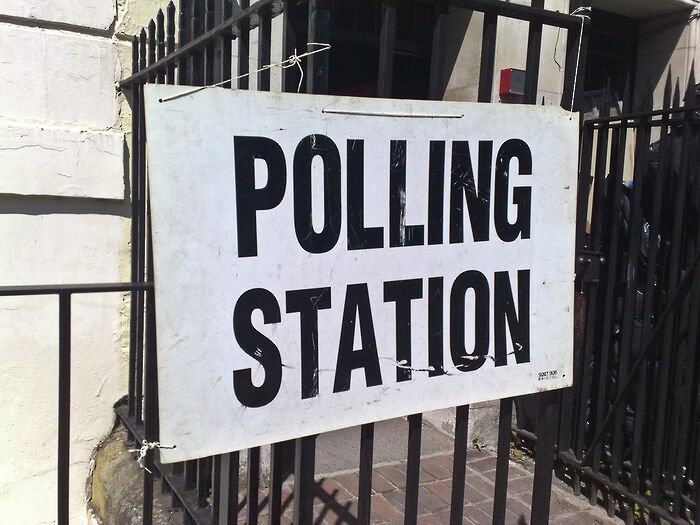EU Elections results: Brexit Party and Liberal Democrats dominate in East of England, while Labour loses its only seat
This contrasts a strongly pro-Liberal Democrat and Green Party result in Cambridge City, while both Labour and the Conservatives made major losses

The Brexit Party came out on top in the East of England, securing three out of the seven seats available on the European Parliament. The Liberal Democrats gained two seats, with the Conservatives and the Greens gaining the final two.
This result was not reflected in Cambridge City, where the Liberal Democrats won 43.4% of the vote, followed by the Greens with 23.6%. The Brexit Party only gained 5,064 votes, 12.7% of the total, and just over a third of its result for the East of England region as a whole.
This is not surprising in a city which voted strongly to remain in the EU on 23 June 2016, with 73.8% voting Remain and only 26.2% voting Leave. In Thursday’s election, 70.3% of Cambridge voters supported explicitly pro-Remain parties, closely mirroring this result.
Another 11.4% of voters showed support for Labour, who favour a ‘soft Brexit’, while 17.6% of the vote in Cambridge City went to the ‘hard Brexit’ parties of the Brexit Party, UKIP and the English Democrats.
Labour and the Conservatives have made major losses in Cambridge City, compared to the 2014 EU elections, down 16.6% and 12.1% respectively. On the other hand, the Liberal Democrats' vote share went up by 22.2%, while the Greens made a smaller gain of 3.6%. UKIP saw its vote share fall by 11.2%, which has likely been absorbed by the Brexit Party.
This year saw a turnout of 36.37% in the Eastern Region, a small improvement on last time’s turnout of 36.19%.
The Brexit Party secured 37.7% of this vote, followed by the Liberal Democrats with 22.6%. The Greens and the Conservatives gained 12.6% and 10.2% respectively, enough to secure them each an MEP.
Mirroring losses across the country, Labour lost its only seat for the East of England, winning only 8.7% of the vote. UKIP took an even more major hit, gaining only 3.4% compared to its leading result of 34.5% in 2014, with its vote likely monopolised by the Brexit Party.
Alex Mayer, incumbent Labour MEP, tweeted that she was “deeply disappointed” that Labour were not able to hold their seat.
The seven MEPs elected by the East of England region will join a total of 73 across the 12 multi-member regional constituencies, selected by proportional representation.
The 2014 election saw three seats go to UKIP in the East of England, three to the Conservative Party, and one to Labour. However, both Patrick O’Flynn and Tim Aker have since defected from UKIP, to the Social Democrats and the Brexit Party respectively.
The result for East of England reflects the projected national result, with the Brexit Party and the Liberal Democrats looking set to make significant gains, at the expense of Labour and the Conservatives.
The 73 MEPs elected for the UK face a historically short tenure, as the UK is set to leave the EU on 31st October. If parliament were to pass a successful Brexit deal, this could happen even sooner. However, due to the continuing uncertainty surrounding Brexit, the UK legally has to participate in this year’s elections as a current member of the EU.
For many Leave supporters, this election was something that should have never happened. David Campbell-Bannerman, previous Conservative MEP for the Eastern region, stated that it “would be dishonourable” to stand for re-election after the deadline of 29th March 2019 was extended. Two other incumbents, both former UKIP MEPs, also refused to contest this year’s election.
Despite such protests, the Remain and Leave supporting parties have fiercely contested this year’s election, hoping that it will serve as an indicator of the public mood on the status of Brexit and government policy.
Polling has suggested that revoking Article 50 and a no-deal Brexit are among the most popular Brexit outcomes for the public.
This perhaps explains the success of the Brexit Party, who are broadly perceived to hold the most hardline position on leaving the EU. The Liberal Democrats have similarly made gains from espousing a strongly pro-Remain position, although the Remain vote has been split with the Greens and the newly-formed Change UK (formerly The Independent Group), whose leader is Heidi Allen, MP for South Cambridgeshire – the constituency into which both Homerton and Girton colleges fall.
The nine parties in the running for the seven MEP seats in the East of England region were Change UK, Conservative, English Democrats, Green, Labour, Liberal Democrats, The Brexit Party, UKIP and an Independent.
The final EU countries voted in the European elections today, with the vote having taken place on Thursday in the UK. The polls officially closed across the whole of Europe at 10pm yesterday.
 News / Uni Scout and Guide Club affirms trans inclusion 12 December 2025
News / Uni Scout and Guide Club affirms trans inclusion 12 December 2025 News / Pembroke to convert listed office building into accom9 December 2025
News / Pembroke to convert listed office building into accom9 December 2025 News / Cambridge Vet School gets lifeline year to stay accredited28 November 2025
News / Cambridge Vet School gets lifeline year to stay accredited28 November 2025 Features / Searching for community in queer Cambridge10 December 2025
Features / Searching for community in queer Cambridge10 December 2025 News / Uni redundancy consultation ‘falls short of legal duties’, unions say6 December 2025
News / Uni redundancy consultation ‘falls short of legal duties’, unions say6 December 2025









